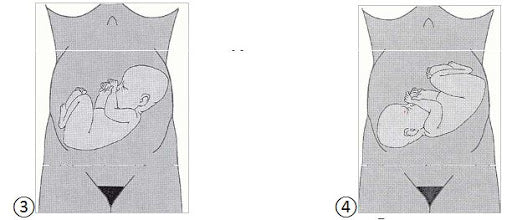
From the moment you saw those two happiness-inducing pink lines on your pregnancy test, you've been doing whatever it takes to do nothing that could harm your baby. Sleeping on your back pregnant: Dangerous or essential?
Is sleeping on your back pregnant dangerous?
As your uterus grows (usually after 20 weeks — that's five months), it's large enough to rest on the inferior vena cava, if you're lying on your back, explains Cleveland Clinic Ob/Gyn Salena Zanotti, MD.
Researchers in New Zealand found that there was a potential increased risk of prenatal mortality for women who slept all night on their backs. But Dr Zanotti says these and similar studies were small, non-randomized and should not be taken as definitive proof.
For example, studies have looked at women who spent the whole night on their backs and never got up to use the bathroom. "But most women don't sleep through the night without getting up at this point in pregnancy - even if they want to," says Dr. Zanotti.
Also, she adds, many factors are involved in pregnancy, so it's very hard to say one thing is causing these deaths or other problems. “Many women who sleep on their backs may be snorers or suffer from sleep apnea. This is where these studies are at fault because you can't rule out all of these things. »
Quantifying it is the tricky part
Dr. Zanotti reassures pregnant women not to stress out if they accidentally find themselves on their backs for a brief period of time.
“We know that short periods of time — even if you were on your back for an hour or two — probably won't hurt your child,” she says. "The hard part is that we can't really quantify exactly how much 'safe weather' is and what it really does."
When women are far into their pregnancy, they'll feel lightheaded or unwell if they're on their backs for long periods of time, Dr. Zanotti notes.
“A lot of times your body will tell you something is wrong and it will get you moving,” she says. “So if you're on your back and you're having a little trouble breathing or your heart is beating faster, that's your body's way of telling you to roll over onto your side. Listen to your body. "

Top tips for expectant mothers
So what should an already uncomfortable pregnant woman do? After 20 weeks pregnant, try not to spend the whole night on your back, advises Dr. Zanotti. She suggests to put a pillow between your back and the mattress as insurance. This way, even if you turn around, you're tilted a bit.
"As long as you're not flat on your back, you'll be fine," she says. “Even if you can be on a 20 to 30 degree angle, that will relieve any potential pressure on your inferior vena cava. I think most women, even if they sleep on their back, can be comfortable sleeping at just this small angle. »
While it's reasonable to be cautious, Dr. Zanotti says it's also important to comfort women who already have enough on their minds.
“I've had women who have woken up on their backs and they're worried about causing brain damage to their child. It has not been proven,” she said. "We don't see no higher risk of autism or developmental disabilities in women who slept a little on their backs. "
Prefer to sleep on your side?
Traditionally, obstetricians/gynecologists advised pregnant women to sleep on their left side. This is because your inferior vena cava is to your right. "The idea was that if you slept on your right side, you could potentially compress blood flow," says Dr. Zanotti.
But today, evidence shows that if you're on the other side, you'll still have good blood flow. Most experts therefore tell women that it is normal to sleep on either side, preferably with a pregnancy pillow.
“The ideal on the left side,” she says. “If you love your left side, that's absolutely wonderful. But if you're a right-sided sleeper, you're fine too. "


























